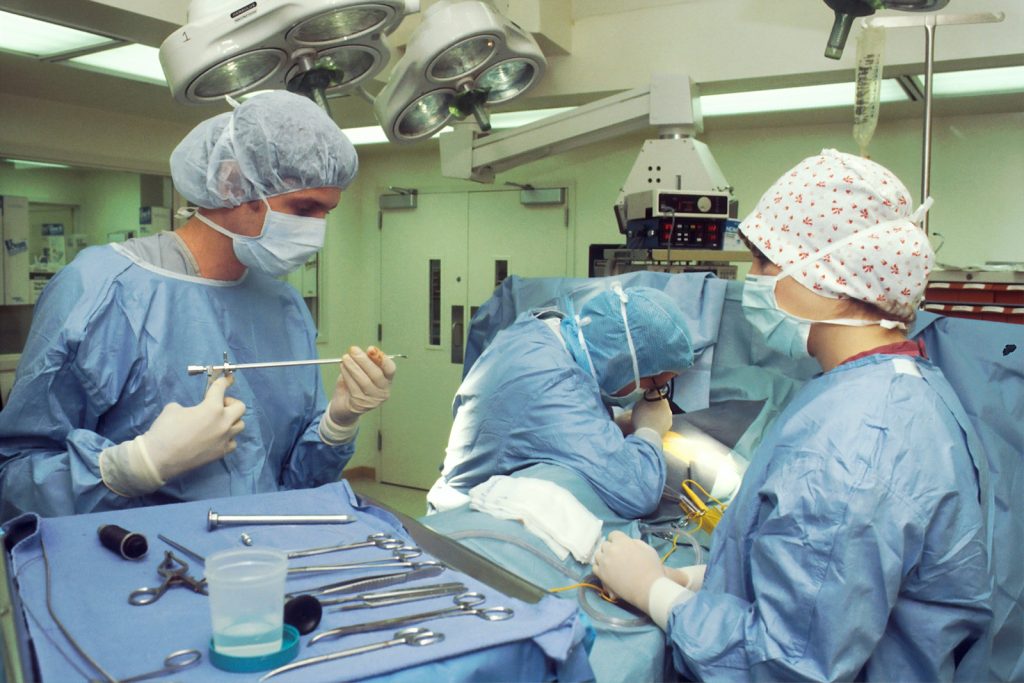In the healthcare industry, ensuring that practitioners are properly licensed is a regulatory requirement. It is also a critical component in maintaining high standards of patient care and safety.
Professional license checks serve as a safeguard, confirming that as a healthcare provider, your organization’s staff has the necessary qualifications and adhere to established professional standards.
Imagine seeking treatment from a doctor who lacks the appropriate credentials. The consequences can be dire, ranging from misdiagnoses to improper treatments, and even fatal outcomes.
Unqualified practitioners pose significant risks to patient health, leading to potential malpractice suits and damage to the healthcare institution’s reputation.
A comprehensive vetting process can help your organization maintain a workforce of qualified, competent professionals.
Professional License Checks
Professional license checks are a crucial component of the screening process in the healthcare industry. These checks involve verifying that a healthcare provider holds the necessary licenses to practice in their specific field.
The process includes confirming the legitimacy of their educational background, training, and any certifications obtained.
The Scope of License Checks In Healthcare
The scope of professional license checks is broad and multifaceted. It encompasses various types of healthcare practitioners, such as:
- Doctors
- Nurses
- Pharmacists
- Therapists
- Allied health professionals
Each of these roles requires different qualifications and licenses, all of which must be meticulously verified.
In addition to initial licensure, ongoing monitoring is also vital. Healthcare professionals are often required to renew their licenses periodically, which involves completing continuing education and maintaining good standing with regulatory boards.
Continuous monitoring ensures that practitioners remain qualified and up-to-date with the latest advancements in their field.
Implementing a robust system for professional license checks can help you prevent the hiring of unqualified individuals, reduce the risk of legal issues, and ensure compliance with regulatory standards.
Regulatory Requirements
Navigating the regulatory landscape for professional license checks in healthcare can be complex, as it involves both federal and state-level requirements.
At the federal level, organizations such as the Centers for Medicare & Medicaid Services (CMS) and the Joint Commission set stringent standards for credentialing and licensure to ensure patient safety and care quality.
These regulations mandate that healthcare providers have verified and current licenses before they can participate in federal healthcare programs.
State regulations add another layer of complexity. Each state has its own medical boards and licensing bodies that set specific requirements for healthcare practitioners.
These requirements can vary significantly from state to state, including different criteria for initial licensure, license renewal, and continuing education.
For example, some states might have more rigorous standards for continuing medical education (CME) credits, while others may have unique requirements for background checks and fingerprinting.
Compliance Requirements for Healthcare Organizations
As a healthcare organization, you need to stay compliant with these regulatory requirements. This is not optional—it’s a necessity. Non-compliance can lead to severe penalties, including fines, loss of accreditation, and legal actions.
More critically, it can compromise patient safety and trust, leading to long-term reputational damage.
The Process of Professional License Verification
The first step in the professional license verification process is gathering all relevant information and documentation.
This includes obtaining the practitioner’s:
- Full name
- Date of birth
- Social security number
- Educational background
- Training history
- Professional certifications
Accurate and comprehensive information is critical to ensure a thorough verification process.
The documentation serves as the foundation for the verification process, ensuring that the candidate’s qualifications are accurately assessed.
Challenges in Professional License Checks
One of the most significant challenges in professional license checks is the potential for misrepresentation and falsified information.
Practitioners may intentionally provide incorrect details about their educational background, training, or licensure status.
This deception can be difficult to detect without a thorough and systematic verification process. This is amongst one of the benefits of outsourcing background verification services to professionals.
For example, a nurse might present a fake license or falsified educational credentials. If these falsifications go unnoticed, the consequences can be severe, compromising patient safety and exposing the organization to legal liabilities.
Ensuring Compliance and Best Practices
Developing a robust verification policy is essential for ensuring that all healthcare practitioners have proper credentials.
Key elements of an effective policy are:
- Comprehensive documentation requirements
- Regular re-verification schedules
- Clear procedures for addressing discrepancies or issues
Legal Implications
In the healthcare industry, adhering to legal standards for professional license checks is paramount. The legal framework is designed to ensure that all healthcare providers meet specific qualifications and maintain high standards of practice.
This framework includes various federal and state regulations, such as those mandated by the Centers for Medicare & Medicaid Services (CMS) and state medical boards.
These regulations require you to verify that the practitioners in your healthcare organization, hold valid licenses and are in good standing with regulatory bodies.
Potential Legal Ramifications Of Non-Compliance
Non-compliance with these legal requirements can lead to severe consequences for your organization.
For instance, employing an unlicensed or improperly licensed practitioner at your organization can result in hefty fines, legal sanctions, and loss of accreditation. Beyond financial penalties, there is also the risk of malpractice lawsuits, which can be costly and damage your organization’s reputation.
Non-compliance can also lead to the revocation of operating licenses, effectively shutting down your healthcare facility.
By implementing thorough and compliant license verification processes, you protect your institution from legal risks and contribute to a safer healthcare environment for your patients.
The Impact of Professional License Checks on Patient Safety
Verified credentials play a crucial role in ensuring patient safety.
When healthcare practitioners are properly vetted and their qualifications are confirmed, it significantly reduces the risk of medical errors, misdiagnoses, and inappropriate treatments.
Statistical Evidence Supporting License Checks
Statistical evidence underscores the importance of thorough license checks.
According to a report by the National Practitioner Data Bank (NPDB), healthcare facilities that implement rigorous credential verification processes have significantly lower rates of malpractice claims and disciplinary actions.
By prioritizing this aspect of healthcare administration, you contribute to a safer and more reliable healthcare system.
Enhancing Trust in Healthcare
You can build trust in healthcare settings via medical license verification and gain patient confidence through verified practitioners.
Patients entrust their health and well-being to healthcare providers, and having verified, qualified practitioners are key to building and maintaining this trust.
This confidence translates to better patient engagement and satisfaction, as patients are more likely to follow medical advice and treatment plans from trusted providers.
Conclusion
Professional license checks are essential in maintaining high standards of patient care and safety in the healthcare industry.
These steps help prevent the employment of unqualified practitioners and protect patients from potential harm.
For comprehensive solutions for your healthcare organizations, you should consider consulting with specialized background verification companies.
By partnering with these experts, you can enhance your organization’s credentialing processes and maintain the highest standards of patient care and safety.
Engaging AMS Inform
Given the complexity and importance of professional license verification, many healthcare organizations opt to engage AMS Inform.
By entrusting this critical task to our experts, you can focus on other essential aspects of healthcare management, confident that your staff’s credentials are verified and compliant with all regulatory requirements.
Our team can access primary source verification (PSV) databases, contact educational institutions, and check with state licensing boards.
We provide comprehensive background checks for the healthcare industry, including identity verification, educational verification, pre/post-employment verification, criminal checks, credit checks, health and drug checks, insurance claim investigations, and language translation services.
Founded in 1986, AMS Inform boasts over 38 years of experience in the background verification field. We operate in more than 160+ countries, with local teams in 16 of them to support our business operations. As a member of the NASSCOM and PBSA family, we are dedicated to protecting the health and reputation of your business.
Contact our team today for tailor-made solutions for your requirements.


















